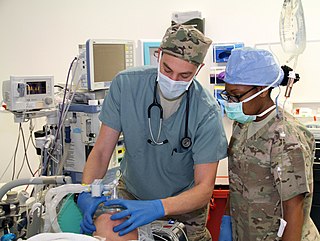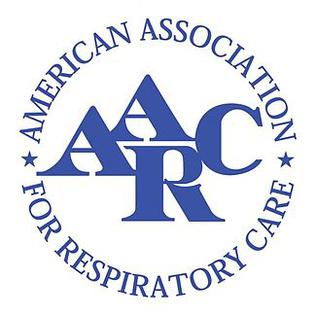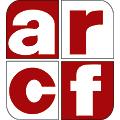
A physician, medical practitioner, medical doctor, or simply doctor, is a health professional who practices medicine, which is concerned with promoting, maintaining or restoring health through the study, diagnosis, prognosis and treatment of disease, injury, and other physical and mental impairments. Physicians may focus their practice on certain disease categories, types of patients, and methods of treatment—known as specialities—or they may assume responsibility for the provision of continuing and comprehensive medical care to individuals, families, and communities—known as general practice. Medical practice properly requires both a detailed knowledge of the academic disciplines, such as anatomy and physiology, underlying diseases and their treatment—the science of medicine—and also a decent competence in its applied practice—the art or craft of medicine.

Physical therapy (PT), also known as physiotherapy, is one of the allied health professions. It is provided by physical therapists who promote, maintain, or restore health through physical examination, diagnosis, management, prognosis, patient education, physical intervention, rehabilitation, disease prevention, and health promotion. Physical therapists are known as physiotherapists in many countries.

A respiratory therapist is a specialized healthcare practitioner trained in critical care and cardio-pulmonary medicine in order to work therapeutically with people who have acute critical conditions, cardiac and pulmonary disease. Respiratory therapists sometimes graduate from a college or university with a degree in respiratory therapy and have passed a national board certifying examination. The NBRC is responsible for credentialing as a CRT, or RRT,

A pharmacist, also known as a chemist or a druggist, is a healthcare professional who specializes in the preparation, dispensing, and management of medications to ensure safe and effective use, while also providing medication counseling and guidance to patients and healthcare providers. Also, pharmacists often serve as primary care providers in the community, and may offer other services such as health screenings and immunizations.
Osteopathic medicine is a branch of the medical profession in the United States that promotes the practice of science-based medicine, often referred to in this context as allopathic medicine, with a set of philosophy and principles set by its earlier form, osteopathy. Osteopathic physicians (DOs) are graduates of American osteopathic medical colleges and are licensed to practice the full scope of medicine and surgery in all 50 US states; they have historically applied for medical licensure in 87 countries outside of the United States, 85 of which provided them with the full scope of medical and surgical practice. The field is distinct from osteopathic practices offered in nations outside of the U.S., whose practitioners are generally not considered part of core medical staff nor of medicine itself, but rather are alternative medicine practitioners. The other major branch of medicine in the United States is referred to by practitioners of osteopathic medicine as allopathic medicine.
Internal medicine, also known as general internal medicine in Commonwealth nations, is a medical specialty for medical doctors focused on the prevention, diagnosis, and treatment of internal diseases. Medical practitioners of internal medicine are referred to as internists, or physicians in Commonwealth nations. Internists possess specialized skills in managing patients with undifferentiated or multi-system disease processes. They provide care to both hospitalized (inpatient) and ambulatory (outpatient) patients and often contribute significantly to teaching and research. Internists are qualified physicians who have undergone postgraduate training in internal medicine, and should not be confused with "interns”, a term commonly used for a medical doctor who has obtained a medical degree but does not yet have a license to practice medicine unsupervised.

Anesthesiology, anaesthesiology, or anaesthesia is the medical specialty concerned with the total perioperative care of patients before, during and after surgery. It encompasses anesthesia, intensive care medicine, critical emergency medicine, and pain medicine. A physician specialized in anesthesiology is called an anesthesiologist, anaesthesiologist, or anaesthetist, depending on the country. In some countries, the terms are synonymous, while in other countries they refer to different positions, and anesthetist is only used for non-physicians, such as nurse anesthetists.
The Association of American Medical Colleges (AAMC) is a nonprofit organization based in Washington, D.C. that was established in 1876. It represents medical schools, teaching hospitals, and academic and scientific societies, while providing services to its member institutions that include data from medical, education, and health studies, as well as consulting. The AAMC administers the Medical College Admission Test and operates the American Medical College Application Service and the Electronic Residency Application Service. Along with the American Medical Association (AMA), the AAMC co-sponsors the Liaison Committee on Medical Education (LCME), the accrediting body for all U.S. MD-granting medical education programs.
Hospital medicine is a medical specialty that exists in some countries as a branch of family medicine or internal medicine, dealing with the care of acutely ill hospitalized patients. Physicians whose primary professional focus is caring for hospitalized patients only while they are in the hospital are called hospitalists. Originating in the United States, this type of medical practice has extended into Australia and Canada. The vast majority of physicians who refer to themselves as hospitalists focus their practice upon hospitalized patients. Hospitalists are not necessarily required to have separate board certification in hospital medicine.
The Joint Commission is a United States-based nonprofit tax-exempt 501(c) organization that accredits more than 22,000 US health care organizations and programs. The international branch accredits medical services from around the world.

The American Osteopathic Association (AOA) is the representative member organization for the more than 176,000 osteopathic medical doctors (D.O.s) and osteopathic medical students in the United States. The AOA is headquartered in Chicago, Illinois, and is involved in post-graduate training for osteopathic physicians. Beginning in 2015, it began accrediting post-graduate education as a committee within the Accreditation Council for Graduate Medical Education, creating a unified accreditation system for all DOs and MDs in the United States. The organization promotes public health, encourages academic scientific research, serves as the primary certifying body for D.O.s overseeing 18 certifying boards, and is the accrediting agency for osteopathic medical schools through its Commission on Osteopathic College Accreditation. As of October 2015, the AOA no longer owns the Healthcare Facilities Accreditation Program (HFAP), which accredited hospitals and other health care facilities.
The Accreditation Council for Graduate Medical Education (ACGME) is the body responsible for accrediting all graduate medical training programs for physicians in the United States. It is a non-profit private council that evaluates and accredits medical residency and internship programs.
Most physicians in the United States hold either the Doctor of Medicine degree (MD) or the Doctor of Osteopathic Medicine degree (DO). Institutions awarding the MD are accredited by the Liaison Committee on Medical Education (LCME). Institutions awarding the DO are accredited by the Commission on Osteopathic College Accreditation (COCA). The World Directory of Medical Schools lists both LCME accredited MD programs and COCA accredited DO programs as US medical schools. Foreign-trained osteopaths do not hold DO degrees and are not recognized as physicians in the United States or in other jurisdictions.

Goodwin University is a private non-profit university in East Hartford, Connecticut.
American Career College is a private, for-profit vocational college offering associate degrees, diplomas, and certificates in healthcare programs. It has campuses in Los Angeles, Ontario, and Anaheim, California, all accredited by the Accrediting Bureau of Health Education Schools. It is a member of the California Association of Private Postsecondary Schools.

The American Association for Respiratory Care (AARC) is a non profit organization and is the only professional organization supporting Respiratory Care in the United States. In addition to attempting to help lobby for beneficial legislation nationally and locally, the AARC is trying to promote the profession as a whole to increase interest and membership. The AARC began in 1943, as the Inhalation Technician Association and has evolved rapidly and repeatedly since.
The National Board for Respiratory Care (NBRC Inc. is a non-profit organization formed in 1960 with the purpose of awarding and maintaining credentialing for Respiratory Therapists in the United States. The NBRC is the only organization in the United States which develops certification examinations for Registered Respiratory Therapists and Certified Respiratory Therapists. The NBRC also offers additional specialization credentialing for respiratory practitioners that hold its certifications. The CRT and RRT designations are the standard credential in respiratory care for licensure requirements in the portions of the United States that have enacted a Respiratory Care Act. States that license respiratory therapists sometimes require the practitioner to maintain their NBRC credentialing to maintain their license to practice. The NBRC is headquartered in Overland Park, Kansas. It has been in the Kansas City metropolitan area since 1974. The NBRC is located at 10801 Mastin St, Suite 300, Overland Park, KS 66210.

The American Respiratory Care Foundation is a non-profit organization founded by the American Association for Respiratory Care formed to provide funding for research in the field of pulmonology and respiratory care. Formed in 1974 as the American Respiratory Therapy Foundation and then changed to the American Respiratory Care Foundation in 1986. The ARCF is a partner with the United States Environmental Protection Agency, who has awarded grants to the ARCF in order to help fund research directly related to asthma and asthma education.









